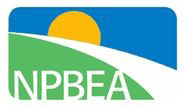17 Nov2015
By Amanda Lester
On November 3, the Wallace Foundation hosted a policy briefing in Washington, DC, to highlight findings from its recently released report, Developing Excellent School Principals to Advance Teaching and Learning: Considerations for State Policy. Commissioned by the Wallace Foundation and authored by Paul Manna, professor of government and policy at the College of William and Mary (VA), the report addresses the question What can state policy makers do to help ensure that schools have excellent principals who advance teaching and learning in their schools?
During the briefing, Manna presented findings from the report with a focus on the changing role of the principalship, the principal’s position as multiplier of effective teaching and leadership practice, and the impact of state policy making on principal effectiveness. Wallace Foundation President Will Miller underscored these perspectives in his introductory remarks: “There’s growing recognition that principals should no longer mainly be thought of as managers of buildings and bus schedules,” he said. “Indeed, effective leaders are their schools’ chief improvement officers—strengthening instruction, building a culture of high achievement, and supporting teachers and other educators to boost student performance.”
10 Nov2015
By Sharon Robinson
A set of nine laudable principles to advance the teaching profession undergird an ambitious campaign organized by the Center for American Progress (CAP) that launches today. The new initiative, TeachStrong, targets improvements at every stage of the educator pipeline, from recruitment and preparation through licensure and career pathways, calling for a much-needed shift in focus in education policy away from test-and-punish accountability and toward strengthening the teaching profession.
TeachStrong attempts to elicit a common tune from the cacophony of voices across the education sector—from AACTE and the National Board for Professional Teaching Standards to the National Council on Teacher Quality and Teach for America—with a “Path to Modernizing and Elevating Teaching” comprising nine goals:
03 Nov2015
By Mark LaCelle-Peterson
What do teachers and school leaders need to know about assessment, and how are preparation programs helping preservice educators to develop assessment literacy? And once program completers are employed, how can school districts support their ongoing growth?
To explore these questions, Northwest Evaluation Association (NWEA) has established a Task Force on Assessment Education for Teachers, on which I serve along with others involved in preservice and in-service educator preparation. And we want to hear from you!
30 Oct2015
By Roxanne Pickle
The sixth annual edTPA Minnesota Summit, held October 7 at St. Cloud State University, focused on an issue that is essential to high-quality, comprehensive teacher preparation: securing and maintaining partnerships among higher education institutions and PK-12 school districts.
The summit brought together nearly 100 Minnesota educators to discuss strategies and best practices for creating strong bonds between educator preparation programs and the schools that will host and hire their students.
27 Oct2015
By Kristin McCabe

Last week, the National Policy Board for Educational Administration (NPBEA) voted unanimously to approve revised standards for education leaders. The 2015 Professional Standards for Educational Leaders, formerly known as the Interstate School Leaders Licensure Consortium (ISLLC) standards, are currently available in summary form and will be published officially next month.
The Council of Chief State School Officers (CCSSO), which owns the standards’ copyright, worked closely with other members of NPBEA to refresh the ISLLC standards, which were first published in 1996 and last updated in 2008. The revision was supported by a grant from the Wallace Foundation and informed by multiple public comment periods and focus groups, culminating in an NPBEA working group charged with finalizing the standards based on feedback from more than 1,000 principals, superintendents, and others in the field.
16 Oct2015
By Jerrica Thurman
Did you know October is National Principals Month? While we appreciate our school leaders year round, this month is a special time to honor principals for their leadership and vital work in schools.
National Principals Month is a broad celebration of the principalship, marked by national and state resolutions, formal awards and recognitions, and acknowledgments from U.S. senators and representatives and other top government officials. It is an opportunity to say “thank you” to principals across the nation and to share with the community all the great things that principals do.
29 Sep2015
By Zachary VanHouten
In an apparent attempt to expand its reach beyond that provided by the partnership with U.S. News & World Report, the National Council on Teacher Quality (NCTQ) today unveiled a new interactive web site aimed at helping prospective teachers select a preparation program based on the ratings developed in NCTQ’s Teacher Prep Review.
The new web site, Path to Teach, translates the standards used in NCTQ’s Review into an at-a-glance scorecard for programs throughout the country.
24 Sep2015
By Jennifer Knox

Now through October 15, the Association of Independent Liberal Arts Colleges for Teacher Education (AILACTE) is accepting session proposals for the 2016 AILACTE Annual Meeting and Conference to be held in Las Vegas, Nevada, February 22-23, 2016.
The conference theme is “Collaboration as a Cornerstone of Teacher Education.” We seek proposals—60-minute workshops and 30-minute presentations (to be coupled with similar themed presentations)—that help us deliberate on collaboration—big and small—in teacher education.
23 Sep2015
By Sungti Hsu

As your state chapters plan fall and spring conferences, executive retreats, and other meetings, please keep in mind that AACTE staff are available to serve as speakers and presenters at meetings around the country.
08 Sep2015
By Kristin McCabe
A new nonprofit think tank led by Linda Darling-Hammond launched last week, aiming to inform education-related policies by sponsoring high-quality research on timely topics and making the findings easy to access and interpret. This Learning Policy Institute will target PK-12 policies at the federal, state, and local level and will both examine existing studies and conduct or sponsor new research to meet pressing needs for student learning.
In her Huffington Post article announcing the initiative, Darling-Hammond pledges to prioritize whatever works best for students over any partisan agenda. “We will follow the evidence wherever it leads, and will work with those of any political affiliation or point of view who share that commitment,” she writes.
01 Sep2015
By Zachary VanHouten
In its latest effort to debase educator preparation programs, the National Council on Teacher Quality (NCTQ) is reaching out to PK-12 school districts to develop an “Honors Student Teaching” program in partnership with NCTQ. The effort seeks to replace existing student teaching commitments the districts may have with their local institutions of higher education (IHEs) over the course of 2-3 years. See this document for the details of the proposal.
A recent NPR story quoted NCTQ President Kate Walsh as saying, “It’s time for school districts to be much more insistent on what the qualifications are of teachers who enter and try to get a new job with them.” The new partnership proposal demonstrates that NCTQ intends to take charge of defining those qualifications. The proposal offers districts a set of complimentary services that include developing the knowledge and skills requirements for teacher candidate selection, as well as identifying local teacher preparation programs that would best meet the needs of the district—presumably using NCTQ’s Teacher Prep Review as a guide.
25 Aug2015
By Kristin McCabe
In a new series of short videos, superintendents of six large, urban school districts around the country share lessons for improving development of leaders for their districts’ schools. AACTE members working to prepare leaders for schools and districts may find the videos to be a useful resource for their candidates.
The series features the superintendents in Charlotte-Mecklenburg (NC), Denver (CO), Gwinnett County (GA), Hillsborough County (FL), New York (NY), and Prince George’s County (MD), which have been participating in the Wallace Foundation’s Principal Pipeline Initiative for several years. (AACTE is a communications partner for the initiative and, along with its members, is devoting new attention to principal preparation, beginning with a survey this fall.)
10 Aug2015
By Whitney Watkins

Jessica Henry, Ohio University Holmes Scholar
Congratulations to August Holmes Scholar of the Month Jessica Henry!
Henry is a doctoral candidate at Ohio University. Her research interests are mental health and rehabilitation.
Henry’s nominator had this to say about her: “A rehabilitation counselor by trade, it is Jessica’s life goal to improve the quality of life for everyone that she comes into contact with. Jessica epitomizes strength and resilience and leads by example.”
04 Aug2015
By Sungti Hsu
A new report calls on states to ensure more intentional preparation of educators to work with struggling learners, including students with disabilities, English language learners, and students with unidentified learning and behavior needs, to address persistent achievement gaps. The report, issued by the Council of Chief State School Officers (CCSSO) and the University of Florida’s Collaboration for Effective Educator Development, Accountability, and Reform (CEEDAR) Center, builds on a 2012 paper from CCSSO about policies to transform educator preparation generally—whose recommendations were supported by AACTE—and echoes messages of a recent policy brief developed by AACTE and the National Center for Learning Disabilities.
23 Jul2015
By Linda McKee
Last weekend, I was privileged to represent AACTE on a panel at the conference of the International Literacy Association (ILA). Our session, titled “Cultivating Literacy Achievement Through Quality Teacher Preparation,” touched on current program-improvement efforts, revision of the ILA standards for program recognition, variations in licensure requirements across the country, and policy-related challenges.
Joining me for the discussion were William Teale of the University of Illinois at Chicago, Rita Bean of the University of Pittsburgh (PA), Bryan Joffe of the School Superintendents Association, Chris Koch of the Council for the Accreditation of Educator Preparation, and others.










